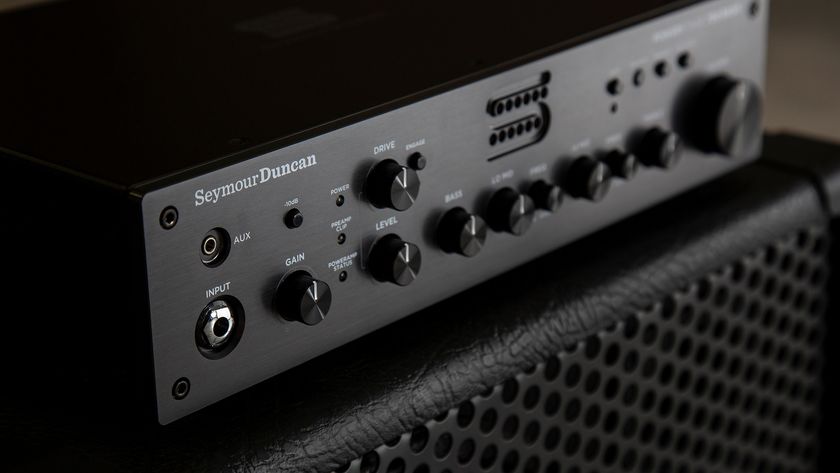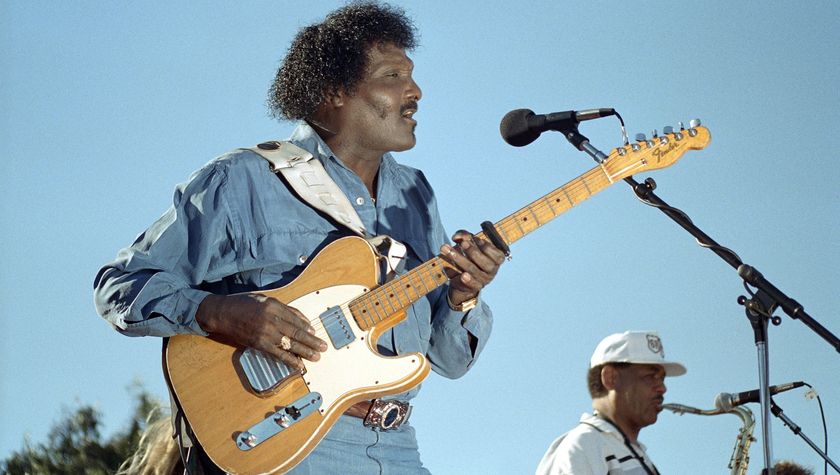Clutch on keeping their chops up, employing "loose cannon" pedals and writing songs about the Boss Metal Zone Covid-19 conspiracy
Neil Fallon and Tim Sult explain how Sunrise on Slaughter Beach became one of the US hard-rock institution's most tonally varied albums – in every sense

Clutch have been a byword for catchy, well-executed guitar music since their first record in 1993. Since then, they've released 13 studio albums and spanned four decades, without any real sign of slowing down.
The band tread a line somewhere between hard rock, metal, and stoner fuzz. Their groove, attitude and frontman Neil Fallon's tongue-in-cheek lyrics, combined with a fearsome live reputation, have seen them continue to find a new audience even in their fourth decade.
Their latest effort, Sunrise on Slaughter Beach, follows the longest break between albums in their career. This was mainly enforced by the pandemic, but also partly by lack of touring, and partly by their decision to focus on livestreams in the interim. The result is a reinvigorated and focused band delivering one of their most confident records yet.
Despite this, the tone is hard to pin down. There's facetious humor, as found on the conspiracy theory-inspired Red Alert (Boss Metal Zone). There's a bombast that is somehow world-weary and knowing, on We Strive for Excellence. Elsewhere, there's the expansively orchestrated American noir of Mercy Brown.
Lead single Red Alert (Boss Metal Zone) was inspired by the story of a Metal Zone schematic being posted online as 'proof' that the COVID vaccine contained a mind-control chip. The original post was somewhere between experiment and prank, yet ended up being shared and reshared as fact.
To find out more, we picked up the phone to guitarists Neil Fallon and Tim Sult. They assured us no Metal Zones were harmed during the making of this album...
What would you say are the themes of Sunrise on Slaughter Beach? We've seen it described as both dark and uplifting.
Get The Pick Newsletter
All the latest guitar news, interviews, lessons, reviews, deals and more, direct to your inbox!
Neil Fallon: “It's hard to say. I mean, personally, I know I was thinking mostly in terms of the lyrics that I didn't want to poison the well, or have the songs' subject matter too anchored in the psychology of the past two years. One of the first songs we wrote was Strive For Excellence, which, keeping that in mind, is maybe a reaction against that. Trying to keep your head up, and pull yourself up by your bootstraps.
“But as time went on, and we started writing more music, it seemed that... maybe the subconscious had to have some kind of safety valve. It can be dangerous to write from the head, and not from the heart. When you plan too much, it's not creatively fertile. You have to sometimes just follow your nose. That's not to say that it's a completely dark record, but I think it is more so than I had originally intended.”
Tim Sult: “It is a bit darker than we originally intended, but at the same time, I feel like the songwriting is a little bit better. More traditional songwriting, rather than trying to bash you over the head with riffs the entire time.”
Even if it is darker, there's a lot of humor there, too.
Fallon: “I wouldn't want to be too heavy-handed, and I think there's always a sense of humor in Clutch lyrics. There's a bit of futility, I think, in complaining about the events, because everybody went through the same things, and nobody's particularly special in their experience. So I think we can just kind of say, 'Okay, yeah, that's the elephant in the room; let's just collectively ignore that.'”
Given the title of Red Alert (Boss Metal Zone), we have to ask: was one used in the recording?
Fallon: “I never did [use one] – I think Tim purchased one, but I don't recall if he tracked with it. I saw that, and then I heard that it was a scientist trying to prove how easy it was to spread disinformation. I just took a step back and was like, 'It's easy to become accustomed to absurdities these days, but this is so absurd.'”
What was different about the writing and recording of Sunrise on Slaughter Beach?
Music is a physical thing, and if we'd just sat on the couch for two years without doing anything then all those skills and muscles would have atrophied
Neil Fallon
Fallon: “Two things immediately come to mind. Over the span of two years we did a series of live streams that we called Live From The Doom Saloon. That was a great way for us just to keep playing. Music is a physical thing, and if we'd just sat on the couch for two years without doing anything then all those skills and muscles would have atrophied. So that was a great way to stay musically in shape. Then the novelty of that wore off, and we realized we wanted to make a new record.
“Historically, at least in the last 15 years, we've made it a point to play as much of the new material live as we could, because that way you know it backwards and forwards, and then happy accidents happen that would never happen in the studio. For obvious reasons, we weren't able to do that.
“Because of that, this album pushed us to explore things in the studio that we wouldn't have otherwise. In that regard, it's a lot like Jam Room, or maybe Blast Tyrant in some ways, because those were very studio-centric albums.”
What kind of experiments took place?
Fallon: “Backup vocals, vibraphones, theremins, crazy guitar effects. I think that was a good thing, because getting out of your comfort zone is always a good mental exercise.”

Did this experimentation extend to the guitars, amps and effects?
Fallon: “I think for the last few records, speaking of guitars, we've been purists. Tim is very much into vintage tones, vintage guitars, with not a lot of color on it unless it's an appropriate guitar effect.
The Way Huge Atreides is a wild pedal, a bit of a loose cannon, but it's fun
Neil Fallon
“On this album, there's a lot of guitar effects. [Producer] Tom Dalgety introduced a lot of pedals that we wouldn't have had otherwise, like the Beetronics Swarm, and I bought a Way Huge Atreides pedal. There was also a lot of EHX Mellotron [M9] and B9. [The Atreides] is on Skeletons on Mars – that thing is all over the place on that. It's a wild pedal, a bit of a loose cannon, but it's fun.”
Any other pedals you used that come to mind?
Fallon: “For overdrives, there's a pedal, the Falcon, I think by a Greek company, Crazy Tube Circuits, that's a great pedal. Creepy Fingers, which is Brad Davis from Fu Manchu – he made me a fuzz pedal that we used quite a bit. Brad is great at what he does.”
Sult: “For me, there's a bunch of effects that I wouldn't usually have used on rhythm parts that are in there as well. Mostly the EHX POG: there's a lot of that in there, buried but adding to the mix. All kinds of crazy settings for different songs.
“Working with Tom Dalgety for the effects thing was definitely something different. It seemed like he had a lot more ideas, effects-wise, for rhythm guitar parts to make the part not just a regular, basic guitar tone, but something more ethereal, I guess.”
Some of those rhythm parts are pretty huge-sounding. Was that just amp, boost into amp, or pedals?
Sult: “It's mostly amp distortion. There were a few spots where we used a few pedals that were laying around the studio, but it's mostly amp distortion. [We used boosts] depending on the track. Every single song was just taken in a different direction guitar-wise; there was no set rhythm tone, or lead tone. They all grew organically.”

What guitars got used on the LP? Was it a case of sticking with trusted gear, or using new things?
Sult: “This time, I used more guitars for an album than I have in the past. Over the past few years, I've bought a couple Banker guitars. It's a small company based out of Georgia – he's one of those Gibson authorized luthiers where he's allowed to make '58 Flying Vs to spec. He's allowed to make the old-school Gibson designs, Flying Vs and Explorers, basically.
“So I bought a few guitars from him, and I played all of those on the album, as well as an older '59 Gibson Les Paul Junior, and another Gibson Les Paul Custom Shop '60 reissue. So there's probably about six or seven different guitars on the album, since I also borrowed one off [collaborator] J. Robbins – it's a Schecter Telecaster-style [PT] guitar.”
Fallon: “For me, it's old trusty – I don't vary it too much. A 2015 [Gibson] 335, and that is the only guitar I played. On this record, the songs that I'm playing guitar on are the more clean songs, whether it be Mercy Brown or Jackhammer Our Names.”
What did you use for amps?
Fallon: “I played through a Benson Chimera amplifier. I love it, and that's what I play it through live. I also played through a Magnatone Stereo Twilighter. It's a combo amp – the signature thing it does is that it's got two speakers and it's got amplitude modulation and frequency modulation, but the speakers modulate separately. So when you mic it, or put your head in front of it, it creates this massive stereo image, which is really cool for tremolo – imagine a tremolo that fills the whole stereo field. Plus it sounds great, it's got really nice clean tones, or overdrive the shit out of it and it sounds super-beefy.”
Sult: “There was a good amount of amps. I used my Orange Overdrive '70s combo a lot, a '70s Orange head as well. I used an old Vox AC30, Marshall JCM800, and a combo that was like an AC15 clone, made in Baltimore by this guy that had a shop in the studio, called Big Crunch amps. They're mostly known for doing a one-knob head.”
You guys have been playing together with almost the same lineup since high school. What is it about music that motivates you to continue?
Sult: “I love the creativity, I love hearing things that I think are good songs, I love the fact that you can actually go out these days and play your own music and make a living playing music – that is one of the best things ever. Providing for my family and being in a rock band is the greatest thing ever. All my kids love music too, and I love the fact it can touch people in their souls.”
Fallon: “From a listening standpoint, I think it can make bad times good, and good times even better. From a writing standpoint, knowing that you've created something completely unique, and if you're performing it, it's unique in a temporal way. Every passing moment, that piece of art evaporates into the atmosphere, and I think that's a pretty beautiful thing.”
- Sunrise on Slaughter Beach is out now via Weathermaker Music.
Alex Lynham is a gear obsessive who's been collecting and building modern and vintage equipment since he got his first Saturday job. Besides reviewing countless pedals for Total Guitar, he's written guides on how to build your first pedal, how to build a tube amp from a kit, and briefly went viral when he released a glitch delay pedal, the Atom Smasher.
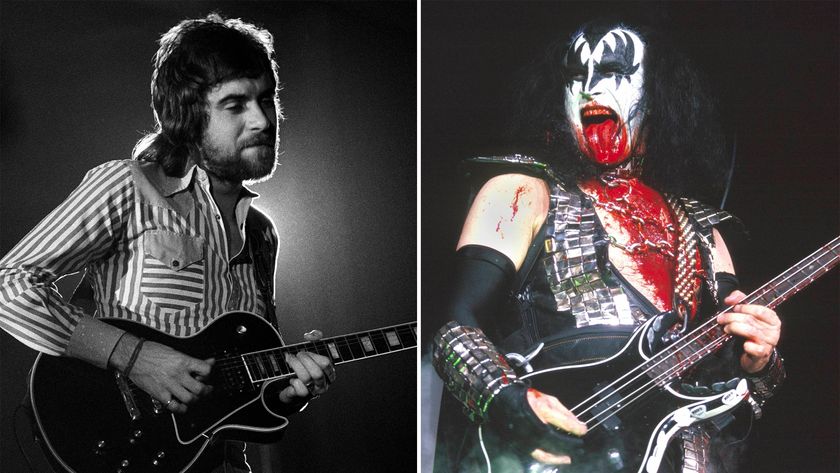
“I had to use the same microphone that Gene Simmons used with all the blood coming out of his mouth. Can you imagine that!” Mick Rogers recalls Kiss supporting Manfred Mann's Earth Band in their early days

“Once Dave got his Roland Space Echo, it changed the vibe… that, and a lot of marijuana”: They inspired everyone from Oasis to the Smashing Pumpkins. Now English post-punk luminaries the Chameleons are back for more

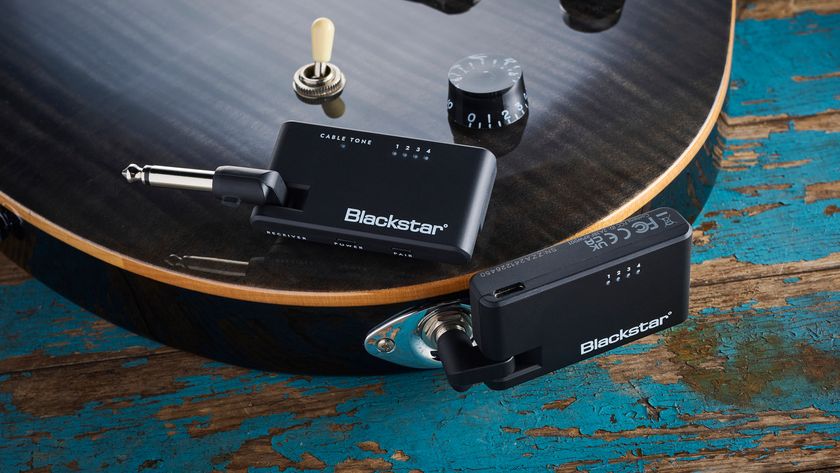

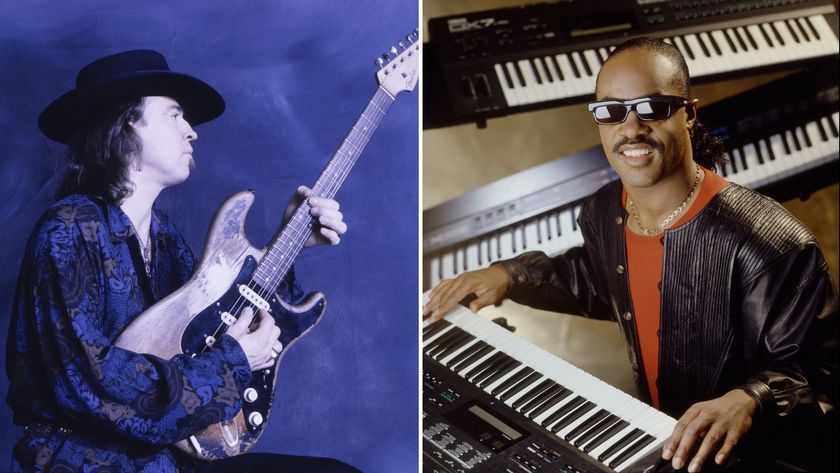

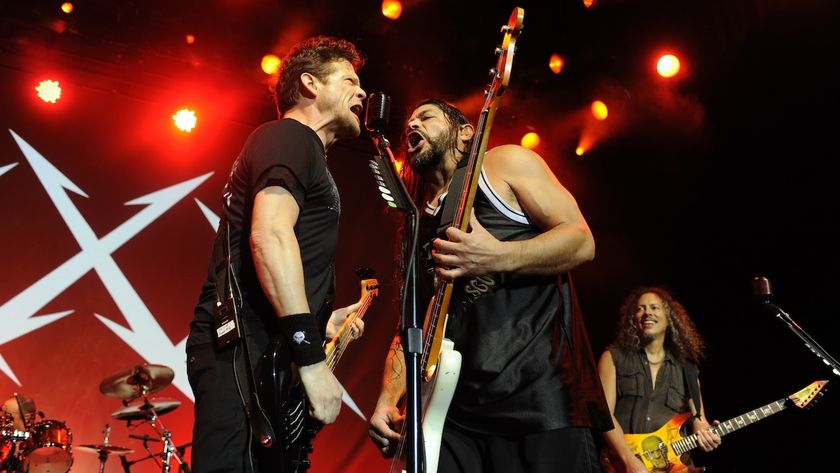
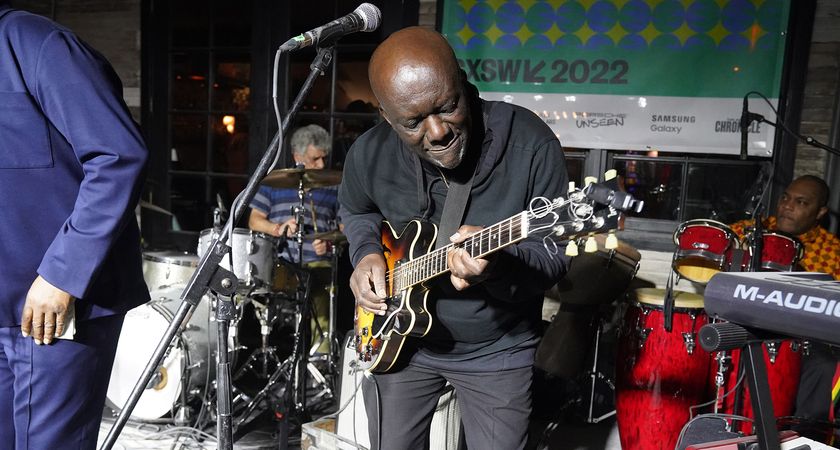
![[L-R] George Harrison, Aashish Khan and John Barham collaborate in the studio](https://cdn.mos.cms.futurecdn.net/VANJajEM56nLiJATg4P5Po-840-80.jpg)
